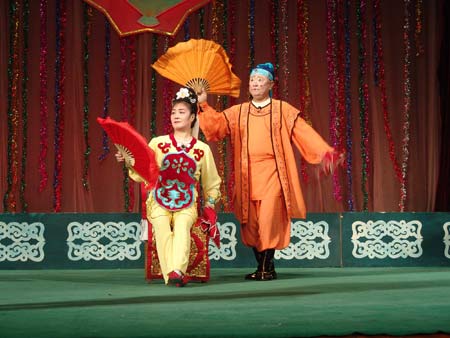Proactive Protection

Recognizing a cultural tradition as intangible cultural heritage entails heightened protection, preservation and promotion, and long-term substantive endeavors. Certain organizations commissioned with the task, however, assume that inclusion on the state list is all that is necessary. Worse still, many regard these items as cash cows to be exploited for political credit, or industrialize the process of their creation to generate higher profits. This is a trend that threatens the very nuances that define these cultural traditions as unique.
Feng Jicai warns that not following the traditional – generally manual – techniques of producing handicrafts such as shadow puppets and papercuts strips them of the essential elements that make them cultural heritage. Introducing mechanization in blind pursuit of higher output and profits degrades these hallmarks of China’s historical agrarian civilization to the level of cheap knockoffs.
China laid down in its promulgation in 2011 of the Intangible Cultural Heritage Law an accountability policy for institutional protectors whereby failure to fulfill responsibilities incurs revocation of the title. The same year, the Ministry of Culture’s review of intangible cultural heritage applications undertook closer scrutiny according to stricter criteria. As a result, only 191 of the 3,000 or so applicants made the cut, as compared to 518 in 2006 and 510 in 2008.
The ministry is working to improve the exit system applicable to institutional protectors, Vice Cultural Minister Wang Wenzhang said. On the basis of experience over the past six years and in light of the UN Convention for the Safeguarding of Intangible Cultural Heritage, it will regularly organize experts to inspect and assess the preservation of intangible cultural heritage. Admonitions will be sent in instances of lackluster performance and destructive development, Vice Minister Wang said. Heritage items found to have deteriorated to below the required standard will be removed from the list, and parties responsible punished.
Striking malfeasants off the list is nevertheless a last resort in the management of intangible cultural heritage. Organizations entrusted with this mission should be aware from the outset of their rights and responsibilities and of the consequences of failure to fulfill them. Harsher penalties are stipulated as a necessary deterrence. It is to be hoped that relevant organizations will display the same degree of commitment to the work of preservation and transmission of cultural heritage as they do to applying for this status.
The Ministry of Culture sanctioned the fourth batch of custodians of state-level intangible cultural heritage – 490 people in all – last year. In 2010 it raised the funding for these custodians from an annual RMB 8,000 to RMB 10,000. Helping to materialize humanity’s living heritage is in the interests of strengthening the continuity of time-honored arts, crafts and traditions.
Source: China Today
